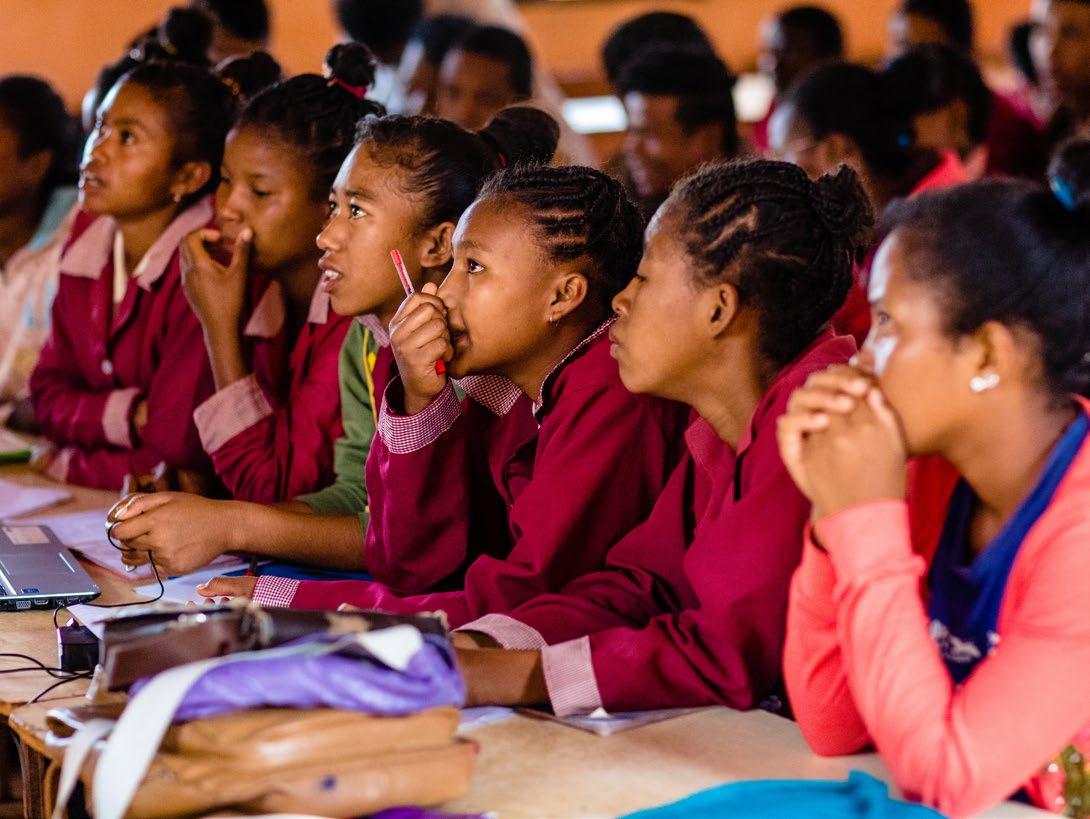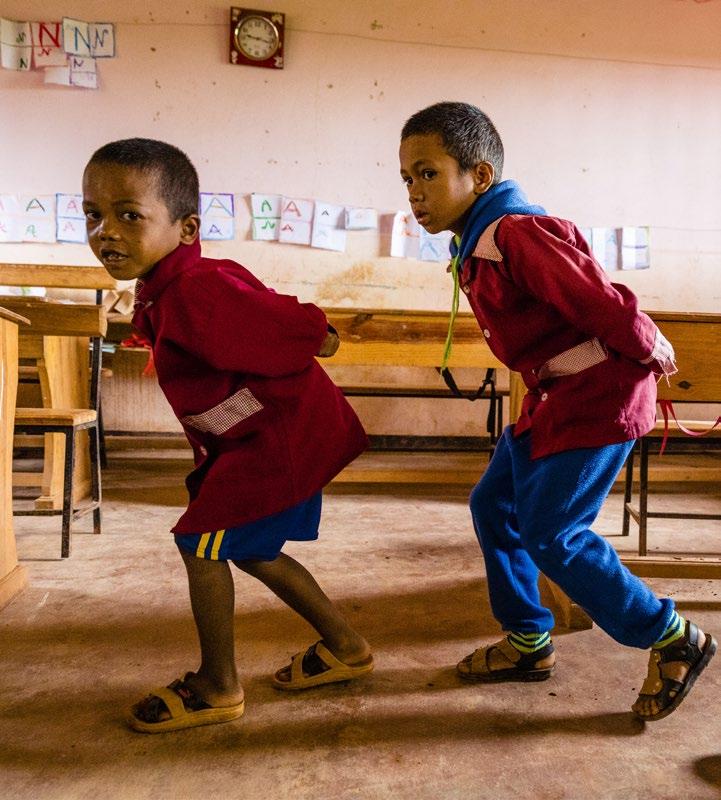
4 minute read
Notes from the Field: The Madagascar School Project
School teacher leaves education legacy in Madagascar
By Warren Everson
Advertisement
A grant from CFLI (Canadian Funds for Local Initiatives) allowed Madagascar School Project to purchase computers and run seminars, opening the world of technology to these senior students.
When Kathy Lucking was visiting a village in central Madagascar, it was the children she noticed the most . “They would be there in the morning, just sitting under the trees . Sometimes you could see flies crawling on them — they didn’t even bother to brush them off . At the end of the day, they’d still be sitting there .”
A Canadian teacher, Lucking soon learned the youngsters had no access to schooling . “The children had no chance in life without some kind of education, so I decided to build a new school .”
It was an improbable plan . Lucking, a mother of four, lived in Eastern Ontario . Finding funds for a school on the other side of the world, in a country many Canadians have never heard of, might be difficult .
Nonetheless, she began . Through the fall of 2006, Lucking established a charity based in Cornwall, Ont ., and found enthusiastic volunteers to staff it, all of them fundraising to finance the construction . Not long after she got back to Canada, she sent a message: She had the money, the locals could start baking the bricks to make the school .
A Montreal-based foundation, “Tenaquip,” later became a major funding source for what Lucking dubbed the Madagascar School Project (MSP); in its honour, the school is called “Sekoy Tenaquip . ”
In the autumn of 2007, she watched proudly as the first 65 students filed into the school . Since then, the Madagascar School Project volunteers have learned a critical reality: a school doesn’t sit apart in a place as poor as this . Much of its work now targets community issues that affect the students .
The first reality is food . The children Lucking saw sitting all day weren’t lazy, they were malnourished . Madagascar is ninth on the World Bank’s list of the planet’s poorest nations .
As one cannot effectively teach a child who is starving, the MSP feeds every student lunch and eventually also began a breakfast program for those who were

Fitiavana, her name carefully embroidered on her frayed uniform by her mother, is proud to be a student. Grade 1 students who are part of the Madagascar School Project imitate animal walks in class. This year, 803 students are attending Tenaquip School.
truly destitute . From there, it was a logical step to provide high-protein porridge to area infants once a day, to ensure they would develop sufficiently to be the next generation of students .
Deforestation has devastated Madagascar, so the school is keenly planting trees whose fruit adds to the school meals . Gardens around the school produce vegetables for the students . Parents unable to afford the tuition can earn it by working alongside the school’s gardening team, who are getting training in permaculture — sustainable, ecosystem-supporting and productive organic farming .
They needed staff . That was the second reality: To grow and sustain the school, they needed a cadre of local educators . Lucking and her colleagues have since been obsessed with recruiting and training . They proudly point to one of their own graduates now studying at the university to become a teacher — she’s already given some classes at the school she once attended .
Progress has been astounding . This year, 803 students settle into their classes every day, supervised by 43 teachers and 35 other staff, including cooks and gardeners . About 40 students come early for breakfast and everyone eats at lunchtime . Students come to the school from 18 different villages in the Ambohiborosy region, some walking 90 minutes each way (even in the rainy season .) Families move into the community simply to allow their children to attend the school .
Regular doctor and ophthalmologist visits have helped alleviate chronic health problems . The project has provided eyeglasses and has sponsored dozens of people to get more serious medical help, even sending one child to Nairobi for facial reconstruction surgery . MSP is building a medical clinic and looking for dental equipment too .
A stream of Canadian volunteer visitors maintains the charity’s presence . One, Carolyn Tropea, is amazed at the changing attitudes . This is the third reality: young minds can open to possibilities .
“When I first went, it was limited ambitions . Kids would say ‘I’m going to plant rice’ or ‘I’ll be a taxi driver .’ No one dreamed of anything bigger . But the last time I was there, the kids were saying: ‘I’m going to be a doctor .’ Lots of girls are asking about the teacher scholarships . We’ve financed two doctors through medical school .”
“Those kids who sat all day… they aren’t sitting anymore . They play soccer, they’re always singing, constantly running . Lots of laughing . They love school . It’s a gift to them .”
Warren Everson is an Ottawa-based writer and a contributor to the Madagascar School Project .











